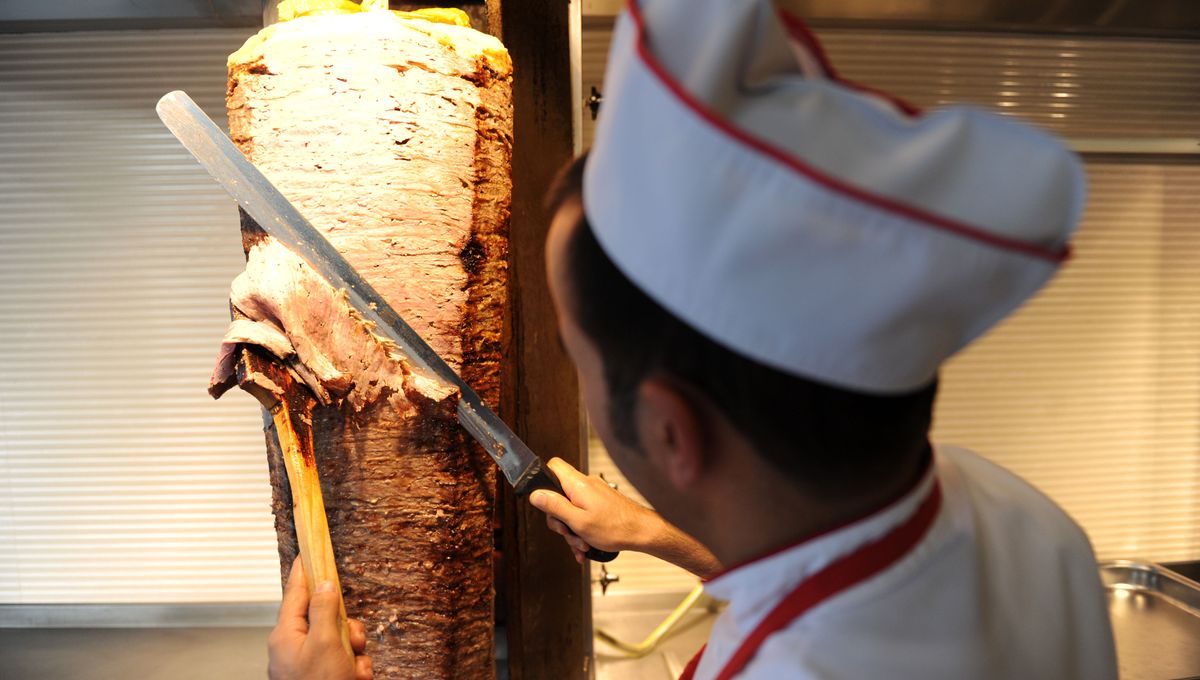
Next time you’re staggering into a takeaway restaurant with a belly full of beer and a desperate need to raise your blood sugar levels, it’s a good idea to check the quality of the doner kebab you are about to slather in sauce and shovel into your booze-addled body.
A study in 2022 by the Wrocław University of Environmental and Life Sciences In Poland carried out a genetic analysis of 35 kebab meat samples bought from dozens of restaurants and food stalls (four from Germany and 31 from Poland).
Using a PCR-based method, they tested the meat for four different animal species: sheep, chicken, cow, and pig. Fortunately, or perhaps unfortunately, these commonly eaten animals were the only species the scientists were on the lookout for.
The researchers found that only 28 percent of the studied kebabs were made purely of the meat they claimed to contain. A total of 60 percent of the tested samples contained either a substitution of a different type of meat than declared or the addition of meat of a different species.
Most commonly, the more expensive meats (namely lamb) were replaced or bulked up with cheaper ones (like chicken) that were not labeled.
Many of the supposed lamb kebabs were bulked out with chicken and/or beef. Some lamb kebabs didn’t contain any lamb at all, only testing positive for beef and/or chicken. Three of the lamb kebabs even contained pork – a troubling discovery for people who don’t eat the meat for religious and cultural reasons.
Overall, the chicken kebabs were labeled accurately, except for one sample that also contained beef.
Remember to consider that the samples in the Polish study are not representative of every single kebab on planet Earth; they simply show a small selection of kebab shops in Poland and Germany. That said, other studies carried out elsewhere in the world have reached conclusions that are equally unappetizing.
In 2009, a British study saw 76 councils throughout the UK sample 494 doner kebabs to check their meat content, labeling, and nutritional value.
Around 40 percent of samples incorrectly labeled the meat present in the kebab, with up to 35 percent of the labels listing different meat species than that actually contained in the kebab. Six kebabs even tested positive for pork when it had not been declared as an ingredient.
They were also unbelievably unhealthy. Some of the kebabs contained 1,990 calories – over 95 percent of a woman’s recommended daily calories – as well as 346 percent of a woman’s saturated fat intake and 277 percent of an adult’s daily salt intake.
Before any kebab aficionados kick up in the comments, these studies primarily focus on doner kebabs as they’re known in Europe: the popular Turkish “fast food” that’s made of meat cooked on a spinning vertical rotisserie, sometimes ominously known as the “elephant leg.” In the US, similar forms of meat wrap are sometimes available, called a gyro or shawarma, and other names exist in various parts of the world.
While some late-night kebabs can be problematic, countless others from authentic restaurants can be of exceptional quality. Unfortunately, many of these studies don’t distinguish between these different standards, so let’s be careful not to judge all kebabs the same way. As ever with good food, quality, transparency, and traceability are key.
Source Link: Don't Eat A Kebab Before Reading This